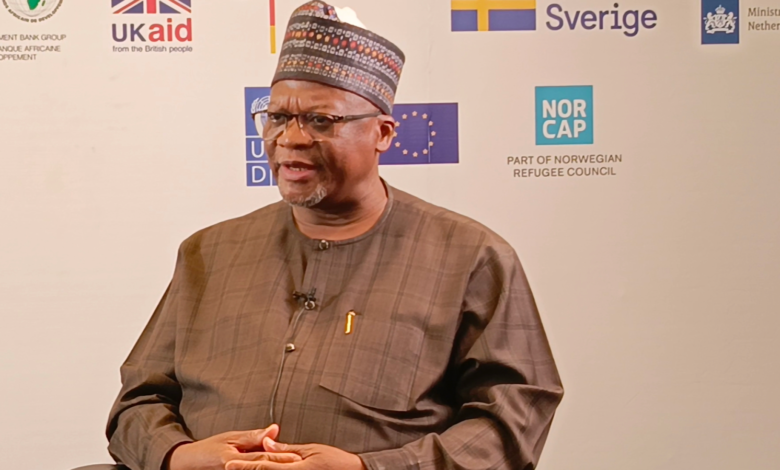Boko Haram Exploited Pre-existing Socio-Economic Deficits In Lake Chad Region, Says LCBC Boss
The Lake Chad Basin Commission's Executive Secretary attributed the terror group’s spread to vulnerabilities already present in the region. He stressed the importance of non-kinetic interventions in further tackling the challenge.

The Executive Secretary of the Lake Chad Basin Commission, Amb. Mamman Nuhu, recently addressed the persistent issue of Boko Haram’s influence in the region, attributing its growth to the pre-existing socio-economic challenges.
He emphasised that prevailing poverty, unemployment, and illiteracy created a susceptible environment for the extremist group’s ideology to spread rapidly among communities in the Lake Chad region.
Nuhu, who is also the Head of Mission of the Multinational Joint Task Force (MNJTF), spoke in an exclusive chat with HumAngle during the 4th Regional Strategy for Stabilisation meeting of the Lake Chad Governors Forum held in N’djamena, Chad, this week.
He observed that the region’s majority youth population, traditionally reliant on farming and cattle rearing, had their livelihoods disrupted, making them vulnerable to Boko Haram’s propaganda. He explained that the shrinking of the lake, which started in the early 1960s, worsened this vulnerability.
This, according to Nuhu, has led to the crisis’s prolonged presence in the Lake Chad area.
“We have to address the issue of poverty. Also, without education, we don’t have security, and we lack knowledge regarding Western and Islamic education,” he said.
He further explained that Boko Haram’s warped interpretation of Islam found no opposition among a populace lacking alternatives. He emphasised the importance of education as a tool for skills acquisition and empowerment.
Nuhu acknowledged the military’s key role in combating the issues plaguing the Lake Chad basin. He commended the MNJTF and national operation for their significant strides in combating Boko Haram, which has seen its influence recede since 2015.
To sustain this progress and ensure peace, Nuhu called for the continued efforts of the forces. He also emphasised the importance of non-kinetic interventions, such as the regional stabilisation strategy, which addresses the problem comprehensively.
Support Our Journalism
There are millions of ordinary people affected by conflict in Africa whose stories are missing in the mainstream media. HumAngle is determined to tell those challenging and under-reported stories, hoping that the people impacted by these conflicts will find the safety and security they deserve.
To ensure that we continue to provide public service coverage, we have a small favour to ask you. We want you to be part of our journalistic endeavour by contributing a token to us.
Your donation will further promote a robust, free, and independent media.
Donate HereStay Closer To The Stories That Matter




